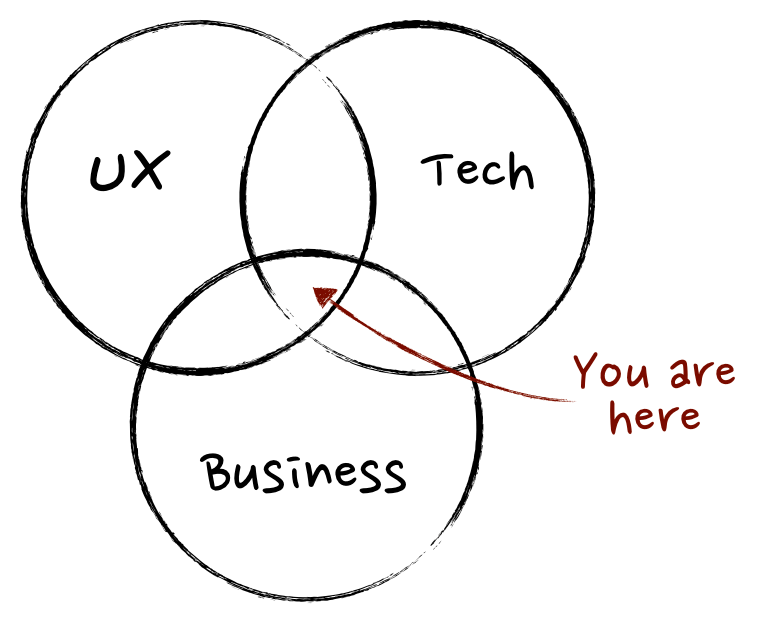A few months ago I was asked to speak at a ThoughtWorks event about what a Product Manager does. This turned out to be very difficult to explain and speaking to other Product Managers didn’t help gain much clarity either!
People are rightfully confused as to what a Product Manager does and to be honest I think they always will be as the vague nature of the role is in essence why product managers are valuable in the first place.
I’m not going to try to end this confusion, or claim I have a solution. I’m just going to propose that you start first by looking at the problem your product is trying to solve and then consider what kind of product management you need for that problem.
I believe that most products fit into three problem archetypes: Experience, Business Model or Tech.

Diagram by Martin Eriksson
The ‘Experience’ Problem
In domains that are technologically “solved problems” and leave little room for business model innovation the problem your product might be solving is around user experience.
Products such as Trello or Slack fall into this category because it is their customer experiences that provide their biggest differentiator. In this case PM’s that come from a design background are most suited.
The ‘Business Model’ Problem
In domains with a familiar customer experience that utilise commodity technologies, your product may be trying to disrupt and differentiate with an alternative business model.
Products like Deliveroo or Uber fall into this category because they have provided a different business way for customers to transact with existing services. In this case PM’s that with previous commercial experience are best suited, for example, startup founders or those with sales and marketing experience.
The ‘Tech’ Problem
In domains where the user experience is simple, and the business model is already proven elsewhere, it is often improving the tech that differentiates a product from its competitors.
Most of the products Google creates are good examples of this category. Google users care most about finding what they want quickly, and Google’s technology enables them to do this better than anyone else. In this case it is often PM’s with technical backgrounds, such as software engineering jobs or computer science programs who are best suited.
In Summary
What good product managers do, and where to find them, varies greatly depending on your product, strategy and maturity. It’s unlikely, if not impossible, to find one individual who possess all the capabilities, approaches, and values needed to solve any type of problem.
A better approach is to understand what type of problem your product is addressing and find PMs with strengths in the areas you need most.
If you would like to read more on this topic I recommend checking out this post by Dan Schmitt and this one by Daniel Demetri who both influenced my thinking.